Kate Bowler: This is Everything Happens and I’m Kate Bowler. This is a podcast where we talk to people about when life doesn’t work out like we hoped it would. Where do we go from there? What does it look like to search for hope and beauty and joy and faith despite it all? Despite chronic illness or a pain that has shrunk our life, despite grief or fear we can’t shake, despite abuse we may have endured, despite marriages or relationships that end or fall apart. Despite, despite, despite the person I’m speaking with today embodies a kind of long faithfulness, I’ve looked up to for a long time. Her name is Beth Moore, and I feel so lucky to get to be in Houston with her today. Beth is a really remarkable person. So before I sit down with her, I just wanted to tell you a bit about her incredibly remarkable life. She’s been in the limelight for almost 30 years as a world famous Bible teacher and author and ministry leader. But and this is the bit where for anyone who say, it doesn’t like me, wake up in the morning and have all kinds of thoughts and feelings about the American religious landscape. This is just the thing you need to know to understand what Beth has been through. She was the absolute darling of the largest conservative denomination in the United States, which is the Southern Baptists. So I’m a scholar of American religion, and I so I write books about the American religious landscape. And I met Beth as part of a research project I was doing about women celebrities in this world. And like, let me just let me just define celebrity here for a minute. Like in a survey of the most followed people on Twitter of any religious celebrity, it goes like this. The pope and then Joel Osteen and then Beth more so when Beth says something, people listen. But what is so tricky is that she is a leader in a conservative denomination. By conservative, I mean Southern Baptists don’t allow women to preach and lead a church. They believe that men should be spiritual leaders. And they’ve been also on the forefront of American culture wars for the last 50 years or so. And so when Beth is growing up in this Southern Baptist world, carving out a way for herself, she’s doing it in the context of people who want her to have a very limited sphere of authority. And so she she gets her start. And it’s so great doing the church aerobics classes in the 1980s. And then she starts teaching Bible studies. By the time I met her, I saw her on stage in front of 10,000 people. So, she’s someone who has sold millions of copies of her books. She’s a well-known teacher on You can hear I’m stumbling because I’m not supposed to say preaching, but like on television, teaching her Bible studies in a context where it was incredibly difficult for women to lead. Okay. And then everything explodes. In 2016, she spoke out against the sins of her beloved denomination about an issue really close to her heart, which is sexual abuse. And she called out leaders and churches that were failing to report sexual abuse in their congregation. And those leaders who are cozying up to politicians who did the same. So when I say when Beth Moore says something, people listen. It was just wild how much vitriol she got for saying something. So. Deeply reasonable. And so this is Beth’s very first interview about her really telling the truth, the whole truth about topics that she has been, you know, respectfully, tactfully quiet about for years. It is a remarkable story about hope and faith despite all kinds of difficulties. Okay. Now, the memoir title is and oh, my gosh, it is a gorgeous book, is so beautifully written. It’s called All My Knotted Up Life. And I feel so lucky we get to talk about it. All right, here we go. Well, I feel so lucky that we get to do this and that we get to do it in person. I have longed to be able to tell you just how much you’ve meant to me and to just knowing how to love people in general. So bless you for doing this.
Beth Moore: Oh, Kate, I was thinking this morning how much I was looking forward to this, because do you know, Kate, we have to rewind a little bit for where our relationship began. Yeah, I knew it began before you did, because I came to love you through prayer. It would have been really, when you were just fighting for your life. And I would have come across a prayer request for you. Yes. And then I would have started following you. And I am Kate. I cannot even estimate to you how many times your name has been written in my journal. I have no idea. As recently as yesterday morning.
Kate: Oh, love.
Beth: Over and over. So it’s an odd thing, what the Lord does through prayer.
Kate: What an amazing feeling to be. Because I have known that bizarre feeling of being carried by other people’s love and prayer. And so I think.
Beth: You know, it’s a it’s a beautiful thing because you come to love somebody that you have never seen with your eyes, or touched with your fingertips. And yet it’s it’s very real love. Like, I knew I felt such a connection before we ever met today because I knew I would feel completely comfortable with you. I thought, Oh, no, no, no. I know Kate, because I’ve known her in prayer. Yes. It’s so crazy and utterly so crazy. You know.
Kate: The thing that I you’ve always been tucked away in my heart for is, is courage. Always because so many of our culture wars are fought through a celebrities through brands or people we don’t know. And your ministry of truth telling in public, even when it’s been painful and hard, means that you are. You are the person that I always imagine is going to say, Lord, what do you require of me today? Oh, and I saw that you are one of the first people I ever think of just to say, well, what would what would Beth or Beth say about that? Oh.
Beth: I can tell you that the answer. That would be too much. Oh. I don’t know exactly what she’d say it is going to be too much. That is what I always think.
Kate: There is this one moment I remember it’s maybe a couple of years ago. You know, we’re all looking for truths that bear up the weight of our lives in all of our in the sort of like flood of spiritual stories we hear sometimes. We don’t quite know which ones are entirely true, like which which stories should we hang it all on? And I remember hearing somebody public tell their story, and I thought, I’m just not sure. And I reached out to you and you said something. I said, you know, I just don’t know really what to think about this. And you said something wonderful that I have held in my back pocket.
Beth: What? What?
Kate: You said umm. Well, it’s it’s a young fruit, Kate, which was a perfect way of saying it’s true, but some truths need time.
Beth: Yes.Yes
Kate: And that was my first thought when I got a chance to read your gorgeous memoir, which is this is not young fruit. You took your time to get here. So what made you want to write this memoir now? And how did you know that you could tell those truths?
Beth: What I have done throughout my entire writing profession, which would be at this point would have some 65 as we’re talking, and I would have written the first thing right around 30. Yeah. So we’re talking this many years. I’ve always gone by whatever I could not stop. A true compelling that if I couldn’t shake it, that it was usually something I was supposed to do. Or I would assume that it was if it was this particular concept or this particular book of the Bible that I was interested in doing curriculum on or whatever it was. What could I not shake? What would last more than a couple of weeks and keep at me and keep at me? And I think probably I knew at some point I would want to do it and but I would have wanted the time to be right. And somehow it did feel right to me. And I think more than anything because I no longer had a clue who I was. Something about writing a memoir when you least know how to make it concrete. I know who I am in Christ. I know the foundations of my life. But I’m saying that it was perfect timing to me because I couldn’t explain or define any of it. And I thought that’s when it ought to be done. Not when you think you’ve got it all tied up, because all you’ll prove to be after that, maybe not Kate, but just think about this with me for a minute. All you prove to be once you’ve just nailed it down that tight, unless you die that day, is a liar. You know, sooner or later, you’ll have outlived something that you said there, and it will not bear to be as true as you thought that it was. But it felt right. And, you know, all I guess everybody says this about a memoir that is anywhere near my age. You know, certain people have to have passed on to the next, to the Lord.
Kate: Yes, Yes.
Beth: Truly, because there is no way I could have written this with some of my aunts and uncles and my grandparents and my parents. I say that a little bit tongue in cheek, but not very much. Yes.
Kate: Yes, Yes. Yeah. Yeah. I don’t think I’ve ever written out of certainty. That makes sense. I write to know something.
Beth: I think so. It makes sense. To work it out
Kate: In a period of unknowing. But you go back to the beginning. Our families are so often our secret keepers, good and bad. Yes. You write so powerfully about the thick as thieves feeling you get those dense.
Beth: Yes.
Kate: Stories and secrets and dumb time so and so got spanked for.
Beth: Yes.
Kate: The wrong. It is. I would love to. I’d love to maybe start back at the beginning and ask you. Tell me about the family that you grew up in.
Beth: So I grew up in Arkansas in a family of eight. I have four brothers and sisters and then my two parents and then my grandmother. And we were very, very, much even though I was raised in a college town in in Arkansas and a two college town. I was raised under very heavy rural Arkansas, kind of an upbringing because my grandparents and my grandmother who live with us and my mother and father all were raised in rural parts of Arkansas. So I like to say that we’re from the bowels. Not just the hills, we’re from the bowels of Arkansas. So, we took on all of that terminology, all of those things, and I would not trade anything for that three generational home. I really, I really wouldn’t. I was really tickled with a sister a couple of days ago. One of my sisters was in town and at my house that I was telling her. I said, you know, I never remember in our entire young lives ever taking a shower by myself. I the whatever girls were in the family, that that was my mother, my grandmother, or either one of my big sisters who ever was in the shower on Saturday evening, they would go, can we stick Bethy in there? And then I would just speak because I was the youngest girl in the family and I would just be stuck in the shower with whoever. So it is just this kind of life a large family.
Kate: All on top of each other.
Beth: Yes, yes. So, you know, in the good and bad that goes with all of that. But but I wouldn’t I wouldn’t trade those family members for anything. Yeah.
Kate: I always wonder if there are restaurant families and non-restaurant families. There are the ones that just are wonderful at the seamlessness of public small talk. And and then there are non-restaurant families in which you’re not the family that invites other people over for sleepovers and wants everybody to know all the things that happen. You had a a sharp divide between the family that everybody knew, truly, and the family that that really I mean, even just until now, no one really had the sense of what was going on.
Beth: Absolutely. Yeah, absolutely. I could not have known how to articulate it when I was young, but it was the best way I know to describe it was the the most the common denominator that stretched across the board to the point, I would say even to my parents deaths was just long term deep instability, never knowing how it was going to go. But a difficult background in that I was sexually abused as a child. But the longer it wasn’t just that if there were any such thing as just being sexually abused. Yeah. And there’s not. But if it it was also because I think to myself, if you pull that out of it. It still would have been an extremely difficult childhood because there was just no telling what was going to happen and what was going to be and were my parents going to make it. And so much conflict in the home with so much hostility in the home and and unfaithfulness. And so it it was quite something. And all this time, Kate, yeah, I was taken to church. And so I look at that, there are so many mixed feelings to have about it because would you call that hypocrisy? Yes. Yes, you could. You could. But I would also tell you that having been taken. That really is where I came to know Jesus and came to believe in the one true thing that marked any kind of stability whatsoever in my life.
Kate: Yes, it is so weird.
Beth: So weird.
Kate: How it can be the truth and its proxy at the same time.
Beth: Absolutely.
Kate: And not knowing is.
Beth: Which is which at any given time.
Kate: Oh, and a child’s mind that can’t possibly other than to know that the ground is constantly shifting under your feet.
Beth: Yes. Yes.
Kate: And that can have a strange sense of knowing that things are terribly wrong. And yet some things like God’s love can be so, so deeply, right. So a way of being. Maybe you like one of the only if I think of it like reflections, one of the only non funhouse mirror reflections you get back.
Beth: It’s true. And Katie, ever wonder I know that you do this the pure wonder of faith. Because don’t you think? How was it? That I or we, in our different traumas knew to believe this one thing, this one person, this that. How? How did my young mind discern the difference? I’ve thought about it so many times because I’ve had a lot of friends that have not had that experience. They that did not transfer over. In other words, they didn’t trust God because they couldn’t trust their parent or whatever. Somehow, I did believe it. And I guess I don’t know, would you call that the gift of faith? I don’t know. I know all things of God are from God, so I know it comes from him. But I, I somehow knew or felt that he was real. And that’s some of what was right before my eyes that I could see and touch was the lesser of my realities. It was a very odd thing. These are things I’ll I’ll ask the Lord about.
Kate: Truth telling is so core. It’s like if I it’s it’s so core to who you are and trying to figure out who is telling the truth. Yes. Came out of a just a whole nest of lies that you were trying to somehow coexist with your dad was a very unsafe person.
Beth: Oh, my goodness, yes. And really, in in every way, not only as a parent, but also as a as a husband. And to my mom and I remember I talk about this a little bit standing over him when he had his stroke, which would several hours later, end his earthly life and thinking to myself, who who were you really? And I never, Kate, I never really knew that. When asked why did I name the memoir All my Knotted up Life? That’s the knott that I, there were so many things I couldn’t sort out. I wanted, I wanted to be able to categorize things in. Okay, This is all good. This is all bad. I didn’t want any of it to be mixed up. I didn’t want any of it to be unclear. And it was like, what? When did you did you, did you change? When? When was it? Was it complete? Just these things that you’ll that you’ll never know. And it’s a very, very complicated grief.
Kate: Yes.
Beth: When you bury a parent that has brought much harm to you because you’re still your parent. And there’s still that. You cannot even deny that connection. Or, or I couldn’t. I was raised under that roof. And he lived to be, you know, 87 years old. So umm.
Kate: You never got to hear the truth of it from him. Did you? Like you couldn’t trust him to be a reliable narrator of what he’d done?
Beth: Oh no. Oh, Absolutely not. I remember that even when he was found out and it would not have been me that would have that would have brought that to the surface. I don’t think. Maybe it would have been at some point, but it was out of my hands. But I remember when he was backed into a corner was the only time he ever apologized. And it was in such a way to say, and this is the last I want to speak of it, it was more transactional. And, you know, I was on to that even at at that point. And I would have been in my twenties at that point. But I didn’t, I didn’t buy it then and I didn’t buy it later by the time his life was over. I was undecided, and that was as good as it got. Yes. So it’s very, very difficult. Very, very complicated. Now, I thought very differently about my mother. I absolutely adored my mother. And my mother was not by any stretch of the imagination, perfect, but or even altogether stable, very unstable for part of my life.
Kate: She had some very dark years.
Beth: Oh, she really did.
Kate: How long was that season? Okay. Sort of this slope
Beth: I love that you and I are talking, Kate, when I have just been with some of my brothers and sisters. We got to discuss some of this. And so I was trying to tell them my life was different than theirs. They knew a very, they were much older. They knew a troubled home and an unstable home. But I and my two siblings closer to my age, lived in what we would have called the years of absolute madness. Absolute madness where there was nothing. I can remember thinking, there’s nothing like being a kid, especially a kid old enough to know, how much is wrong. Like you don’t you don’t have a little kids mind anymore. By this time, you’re a young adolescent and you can process these thoughts. You know that there’s infidelity. You know that there has been abuse. You you know what has happened now. You know, you know it’s sick and yet neither parent. Is a way to go. My mother was so sick and so depressed that she just for I’d say, I’m going to I’m going to estimate it at four years of what I would just call feeling like we were just spinning in the air. I always get the picture of that of the house and Wizard of Oz, just spinning in the air, just spinning where we had no where. It just felt like it didn’t land, that we were just in a in a storm, in a storm and a violent storm. But it was unstable throughout. But those years were maniacal. And the reason they were is because my mother, who would have been who was our stability, went through an unstable time. And because of that and there was nothing. And so were looking looking to your mother and thinking she can’t take care of me, looking to your father and thinking you are the scariest thing in my life. And what happens to us now? It was it was terrifying. It really was terrifying.
Kate: When you describe sort of leaving your home and then having to be a different kind of person as you go out into the world. What did it feel like to have those two layers? Like was, was the underneath one trying to think of how to describe it? Is it shame? Is it just is it just that that swirling, terrible, dislocated chaos that feels like like a collapsing star?
Beth: All of it. All of it. But shame is huge and there is really no telling how much impact it has on anyone that has a background of sexual abuse like I do. Many, many people contend with it anyway. But especially with that factor, there’s no telling the kind of impact that it had, but also that inner chaos. Yeah. It was where you asked yourself continually if someone liked you or if you got if I got anything, if I got any kind of accolade. But there would always be that thing of that. They don’t really know me. So it’s this part of me, even though that part of me was real. But it wasn’t all there was. So one reason why I told pretty quickly, even though I didn’t tell and didn’t until the memoir, tell who my perpetrator was. One reason I told fairly early in the first thing I ever wrote, I mentioned it was clear I’d been sexually abused or at least abused. I don’t know. They would have known they’d have been able to conclude it, but I don’t know if I could have put that particular modifier with that word at that point, but because I wanted to be known. I think we. I think we all do. I would want to know. Do you in knowing me.
Kate: We do want to be known.
Beth: We do.
Kate: And when we’re telling the truth, we accidentally tell the truth.
Beth: Yes.
Kate: You know, So yeah. It’s a weird bit about ministry, too. Where you’re trying to tell the truth about God. You’re trying to tell the truth about the world. And then wait, it’s digging up the truest things I can say about myself.
Beth: Yeah, exactly. One of the things that I pretty quickly do, especially if it’s a new group, like if I’m speaking. So it’s always going to come up at any speaking engagement. It’s always going to come up that I have a really bad past and have really known what it’s like to be in a mess. And I mean of my own making, not just of someone else’s making of my own making. For that very reason, because I want to go listen, I want you you’ve got a chance to make a decision right now, because if you needed a teacher that has done this pretty well, you really need to bolt. Do you really need to turn back in your ticket? I’m not your person. Every now and then I’ve wanted to say to somebody, You know what? I’m not your person. I can tell you you need someone else that did it different. You you need, Anne Graham Lotz, because I have so much respect for her. And she did things so. That’s not me. I was a train wreck.
Kate: That’s I think people say that entirely disingenuously. And I know that you’re really like, No, truly, when I look at the category of good and bad, it is a you describe like a silty gray. And because of that, if you need the purity of these categories to know something about God, this might not be your best choice.
Beth: This isn’t it. There’s a lot of teachers out there and and it gets to be your choice that you go, you know what I don’t want somebody this messy because. I’ve said to some people before this. This is not false humility. I earned it because I was so I was so messed up. I made so many bad decisions and so many along the way and cycled out of so many deep ditches. And so it’s just I, I like people to know that going in, you know, if you need to know that or you can’t understand where I’m coming from. And I just need you to know that you know what teacher you got yourself.
Kate: I found it. I hope this sounds like a compliment, but I found it very encouraging, to, to get a sense of how, like, the ongoingness of the kinds of struggles that you’ve faced. It helps. It did. It helps me be middle aged, frankly. Because there’s there’s this moment where you’re trying to translate the chaos, the, the sandcastle feeling of being a kid with unstable accounts of who you’re supposed to be in the world, and what you deserve, and whether good things are supposed to happen to you. And then you get married. And then you get to you, then you have to build a new sandcastle with somebody else who usually has things that made them feel so incredibly attractive and stable at that moment. And then as there’s a wonderful talk called, Why You Will Always Marry the Wrong Person, by Alain de Botton. And he said there’s, there’s is something wildly matched about the way that our pain finds other people’s pain.
Beth: Oh, I do. I have said so many times, baggage attracts baggage. I’ve said it so many times. Let me tell you this, though, because it maybe as you were talking, it made me think about my editor she texted me at one point when I had turned in a particular part of the book that would have covered my adolescence and in young adulthood. And she said, I just wanted to check with you because she said, she said, I need you know, she said, this reads as if you were promiscuous. Well, I just busted out laughing. And I’m sure I would have busted out laughing 30 years ago. I text her back, and I went uhhh Carol. I was prem.
Kate: I hope it does Carol.
Beth: I don’t know. I hate to do this to you. She said. Well, I guess with checking, I jsut want to make, because I was because she was really. I want to make sure you meant to come across this way. I said well, because it is a memoir, I was trying to be
Kate: artful about this.
Beth: But I would want so much for it to be different. And I want somebody listening to know. I am not laughing over. Because I’m. Glad about it. I’m just simply saying, this is my story. If you got to have a different one, bless you. Bless you. I’m so thankful I don’t have want to have lunch with you. But you know what I’m saying. I don’t know if how good of friends we’ve made because I would feel so intimidated. But I but that’s just, who just wasn’t me. But I’ll never forget that moment. It was, you know Kate it is so fun to have this with you, because I would love for our listeners to know that this is the first I’ve got to talk about the book. So you’re the very first interview I’ve had about the memoir. So well, I don’t know that it’s any honor. But it is the first I’ve kept my mouth shut all this time. And so because it’s been turned in for what about, you know, four or five months? And so it feels good to just go ahead and say this is, this is how it was. I can’t help ya. You know, this is how it was. But I can tell you, God is good that I could tell you.
Kate: Will you set up for me? The opposites of, of young Beth meeting your young husband. You are as Baptist as they come. And he had some Catholic.
Beth: Oh, as Catholic as they come.
Kate: Give me the compare and contrast of young, young Beth meets young Keith.
Beth: What really set us both up for one another. We went to the same college and we were both. He would have been in his second semester, as a junior. I would have been in my first. And I was headed toward marriage with someone who would have been much more compatible. And and more stable in a lot of ways. But I had come to the conclusion it was someone I had dated through high school and dearly, dearly loved. Dearly loved. But he had a very whole family, just some of those rare people that really I mean, he’d whatever you would picture as the as almost an idyllic family, he he had that. And even when I had never told anything about our family, nothing, nothing. Never to him, nothing. Not to my best friends, no one. It was just such a big secret that we carried for so many years. But yet, I knew instinctively. They can’t handle me. They would never again that desire, Kate, to be known and to think. I won’t be able to hide it one on one. I won’t. I won’t be able to hide it within four walls. It’s coming out. That how messed up I am, how messed up my family is. It’s going to come out and I’m not going to be safe with them when it does, because So in the middle of this, Keith also, is someone much more compatible, much more from his world. We meet and I’m going to tell you something when I tell you fireworks and I mean that bad as well as good. I mean, we have had nothing. If we’ve not had fireworks. And by that I mean, we are fiery. We are both fiery. We fought hard. We, we loved hard. We just. Just that. It just we brought a lot of emotion into the same house. But he was also from such a broken home and a home that was together. This is the strange thing about the commonalities that Keith and I had in all our differences, the pain that dwelt within our walls, was probably, umm to a pretty fair degree of the same depth and breadth. Just totally different. He had come from tragedy. He and his brother had been in a fire when they were little bitty boys. His older brother was three and a half and he was two and his brother died. He lived six days. Both boys were burned. And it was it was traumatizing. And the family just literally as, who would who would. This is this is where I have a lot of trouble casting any kind of blame, even though the trauma it has caused all of us, is just unspeakable. But still, how do you get over that? How does your mother get over that? How does your father get over that? And so there was that. And then I came from all manner of instability, and and abuse, and mental illness. And so you put all that together under one roof and you have got a disaster. And we were a disaster. We truly, truly were. But somehow I oh, my goodness. I tell you, you talk about mixed feelings. I was so glad because if somebody said if you had it to do all over again? Well, but I don’t.
Kate: Yes, that’s. Oh my gosh.
Beth: I mean Kate.
Kate: I think it’s the perfect thing to say if you had to do it all over again? But I don’t. But I don’t. I don’t. This is the life we have.
Beth: I have this one dude. you know?
Kate: Exactly, yes.
Beth: And I.
Kate: Yes.
Beth: In, in, I’m going to try to get through this next minute here, if I can. This is the only part of the audio book that I cried so hard in that we had to stop it. And then I had to pull myself together as did, as did my team, who was trying to record it. And then come back to it because I’m very, very tender hearted about this, but I’m very tender hearted about Keith, very. Because I love him so much. And he is the most complicated person. The most complicated person, and it’s very hard to sort out even for him what comes from that background their pain and trauma. What comes from his own chemistry and physiology? But umm, that’s that’s my guy. And we’re we’re still, we’re still at it.
Kate: Yeah. I, I don’t know anyone who has had as much pressure on them to have a perfect marriage than you. I really don’t. Your obvious, incredible public gifts podcasts earned notoriously visual medium. So I will just say that you are incredibly beautiful, so talented, like a powerful call on your life that has put you in front of millions of people, in a religious world that demands that Christian women have a story about a about marital wholeness, that is otherwise the rest of their calling becomes somehow invalidated. And you have, I don’t yeah, I don’t know anyone who has had as much pressure on them.
Beth: I’m so glad you’re bringing this up, Kate. And I’m so glad this happened this morning. Or I might not have thought to say it, but the oddest thing that I could not have seen coming, and I find mysterious to this day and it happened again this morning. Is that because I was a woman leader, in a very conservative world where there weren’t a lot, on at that point, on a platform. My marriage went under scrutiny, immediately. People, They did. He never went with me. They did not know him at all. And suddenly he was being judged. Case in point this morning I saw someone. Thank goodness, this doesn’t even bother me now. Well, now I’ve got to say, I wanted to be a smart aleck about it this morning. I really did. I rehearsed what I would say, what I wanted to say, but I didn’t say it. But a woman said, do not be like Beth Moore and marry someone like Beth Moore’s husband who can’t take authority over his home and his wife. And it was a woman who wrote it. She does not know my husband, has never been to my home, knows nothing about my husband, has never. I thought you don’t know what? What do you mean don’t marry a man like my husband? You don’t know my husband from a little green man from Mars?
Kate: Yes, that’s right. That terrible phrase take authority over. Because like the
Beth: Oh my gosh
Kate: the performance of who’s in control over a conservative female leader is one of the most invisible, terrible, complicated performances that very talented women have to navigate when they have to be charismatic, but not too showy, because the local past does it because it’s a borrowed stage. Because one of my very first feelings of calling was. Was in the confusing, the confusing world of does God get to call me as a as a woman to have any, are my gifts real on their own. And the the culture wars over this have been fought over you in such a in such a terrible way.
Beth: In, in a very public way. And I didn’t see it coming. I have been an active member, I’m going to say, in my lifetime of I’m an estimate. I’ve tried to think exactly about six different churches. And so some of them would have been years and years. But these even though I would have told you that I was around, that I was always exposed to some level of sexism, if you would. In other words, I knew that there was I was, everybody around me. I mean, there was everybody believed in male headship, including me. There was not a kind of disdain, there was not misogyny, that I was aware of. It would be here and there, but not as a tone. And what I mean by that is my whole adult life I served with women and men shoulder to shoulder, and it never dawned on me. I never was a on any kind of ministerial team at my church. The only thing I ever did and got paid at my church was teach aerobics. So, you know, so.
Kate: I love that so much. I love that more than I can possibly say.
Beth: Well, Kate I just want to say to people all the time, that think that I was after my pastor’s pulpit. You know what? I was really after leg warmers. There was no part of me that saw that coming. And may I say, not only was that where I became aware of it and ran into it. I also want to say I saw an intensifying of it, and several of my peers from my same conservative world agree with me on this. We say to one another that are in our mid-sixties something wildly changed because in the last several years. I, I am not sure a woman could have done what I got to do in in my church and in my community, in many churches. Because that’s how much it’s, it’s continued to pull, in my opinion. And I may be wrong, Kate. My my, my perception may be very mistaken. But from where I sit and how I perceive it, it continued to pull to the fundamentalism. And so it wasn’t that I have fought for something that we never had. I’m also fighting for what I did get to have that I can’t see my little sisters having, you know what I’m saying, in that part of the world. So it’s been, it’s been a very strange thing. It’s just such a polarized world that we live in. So, yeah, it has really been something. And this is the beauty of the call, because the reason I have stuck with it is because. It was the Lord who called me and just the Lord who will call me out. So I don’t know what to do with that. So. Well, what do you do? I mean, I’m willing. I’m willing. Yeah. I’ll go out. But here, here I am because this is the who brought me in. You dance with the one who brung ya, as my grandmother said, you know.
Kate: I guess I wanted to maybe, since I could talk to you all day, maybe end with a question about faithfulness. I mean, aging is of course, an incredible privilege. And as we age, we are forced to opt in to a certain kind of faithfulness where we get to ask ourselves and the people around us like, what things endeared, what things stayed?
Beth: Yes.
Kate: The way that you and your husband have chosen to love each other through the darkness. To imagine a life together after the kids are gone. Also, your obsession with your kids and your grandkids is a I mean, things. Speaking of things that endure that obsessive, beautiful, intense, high voltage, you can’t escape from me love that you have.
Beth: No, no, no. That’s right.
Kate: The sense of intense gratitude I hear from you about every precious thing that you were able to hold on to after those, not all good things were given to you as a child. I think when you’ve had the non-restaurant family, you are sort of extra grateful for extra long.
Beth: Yes.
Kate: For all of the.
Beth: Yes.
Kate: All the good things just start to feel like gifts, I guess.
Beth: I will tell you that it is not unusual, for Keith and I to just be watching a show streaming something on the screen. And one of us put our hand out, the other one put our hand in that hand, and to look at each other and realize we both got tears in our eyes. That it’s not wasted on us, that we are together. And oh, one of the things I think a lot about because our hands now look like our grandparents hands when we married. And Kate, I loved that you said a minute ago, it’s a privilege to grow old because I sit across from you. And I would not dare say differently. Because of course it is. Of course it is. Of course it is. I think how many times I’ve prayed that for you, that you will grow old, that you will have those grandchildren, that you will. And you’re right. It is. And it is precious. And there are times that I look at the creases in our hands. And he has all manner of scars on his hands from all his fishing. And I think baby, we’re still here. We’re still here. And I think that all of that is tied to a very faithful God seated on the throne that just keeps whispering over and over. I’m still here. I’m still Here.
Kate: That’s some good hope, my dear. That is a good. That is a good account of hope.
Beth: Well, let me tell you Kate. I have loved this.
Kate: We love that full arc feeling. Of course we do. We love the feeling that our lives, and our pain, and tragedy somehow add up to something meaningful. We want our lives, our choices, our loves to really matter. Neat and tidy stories that are easily explainable. Bad becomes good. Wrong becomes right. It’s probably why tropes like “this made me who I am today” or “everything happens for a reason” are so compelling. But rarely do we feel the full arc of it all. Life doesn’t always make sense. We are left with unanswered questions, unforgiveness, guilt that we can’t let go of, wrongs that were never righted. So here is a blessing for moving forward when our lives still don’t make sense. It’s from our new book of Blessings, and we called it the Lives We Actually Have, because, you know, that’s what we’re working with. And the book is available everywhere books are sold. Okay. So here’s a blessing for that feeling that life isn’t what you would have chosen. Blessed are you when the shock subsides. When vaguely you see a line appear that divides before and after. You didn’t draw it and you can barely even make it out. But as surely as minutes add up to hours and days. Here you are forced into a story you never would have written. Blessed are you in the tender place of wonder and dread. How to be whole when dreams have disappeared. And part of you with them were mastery control, determination, bootstrapping, and grit are consigned to the realm of before, where most of the world lives in a fever dream that promises infinite choices, unlimited progress, best life now. Blessed are we in the after zone, loudly shouting. Is there anybody here? We hear the echo. The shuffle of feet. The murmur of others. Asking the same question. Together in the knowledge that we are far beyond what we know. God show us a glimmer of possibility in this new constraint that small truths will be given back to us. We are held. We are safe. We are loved. We are loved. We are loved. All right, my dears. Bless you. Hey, and before I go, Lent starts this week. So, Lent is that very bummer, this is how I always think of it. So forgive me. It’s the 40 days before Easter where we can tell the truth about our lives. The lovely, the difficult, the heartbreaking. So, let’s just bless it all this lent. We have free downloadable guides for whatever this season is bringing you. So, it’s guides for you to use in your everyday life by yourself. Or there’s one if you want to use it with a group, or there’s one if you lead a congregation or some kind of spiritual community. And that’s for pastors and chaplains. It’s all totally free. But you can go to KateBowler.com/blessthislent and download it for free. Okay We just want to be there for whatever you need. Have a beautiful, terrible day, my friends. I’ll talk to you soon. This episode of the Everything Happens podcast was made possible because of our generous partners Lilly Endowment, The Duke Endowment, Duke Divinity School, and Leadership Education. And of course, nothing is possible without the wisdom and expertise of my absolutely fabulous team. Jessica Richie, my heart. I love you. Harriet Putman, Keith Weston, Gwen Hegginbotham, Brenda Thompson, Hope Anderson, Jeb Burt and Katherine Smith. This really is my very favorite kind of group project. So if you want to know what else we’re up to, head over to KateBowler.com/Newsletter so you don’t miss a thing. I would really love to hear what you thought about this episode. Would you consider leaving a review on Apple Podcasts? Or Spotify? It means a ton to us when we hear what you liked or who you want to hear in conversation next. Also, we really love hearing your voice. Feel free to leave us a voicemail. We might even use it on the air. So call us at 919-322-8731. All right, lovelies. I’ll talk to you next week. But in the meantime, come find me online at Kate C. Bowler. This is. Everything happens with me, Kate Bowler.
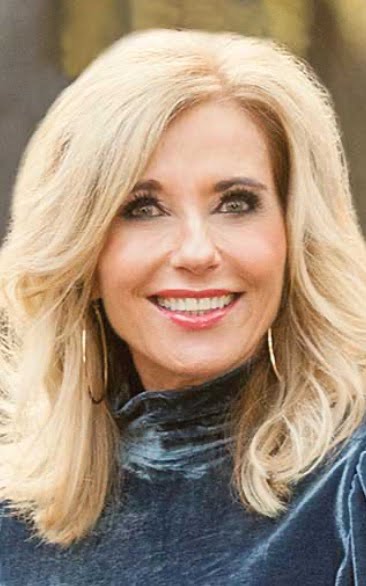

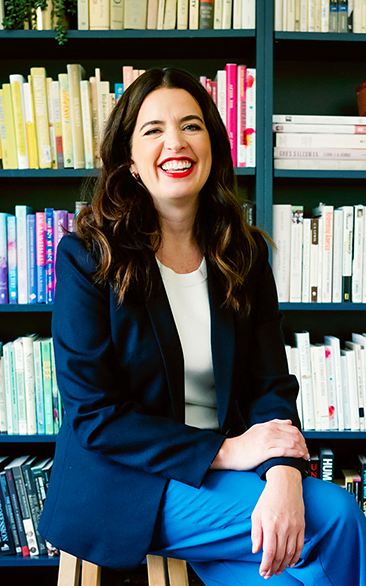








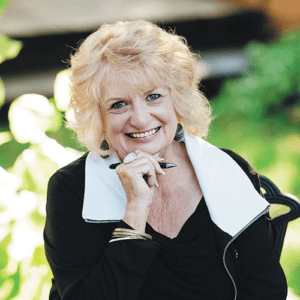
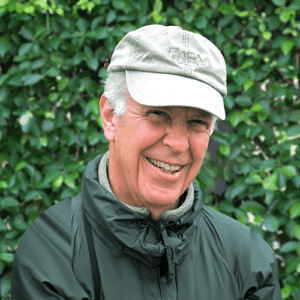
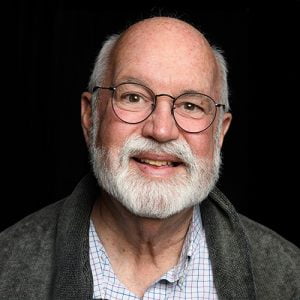
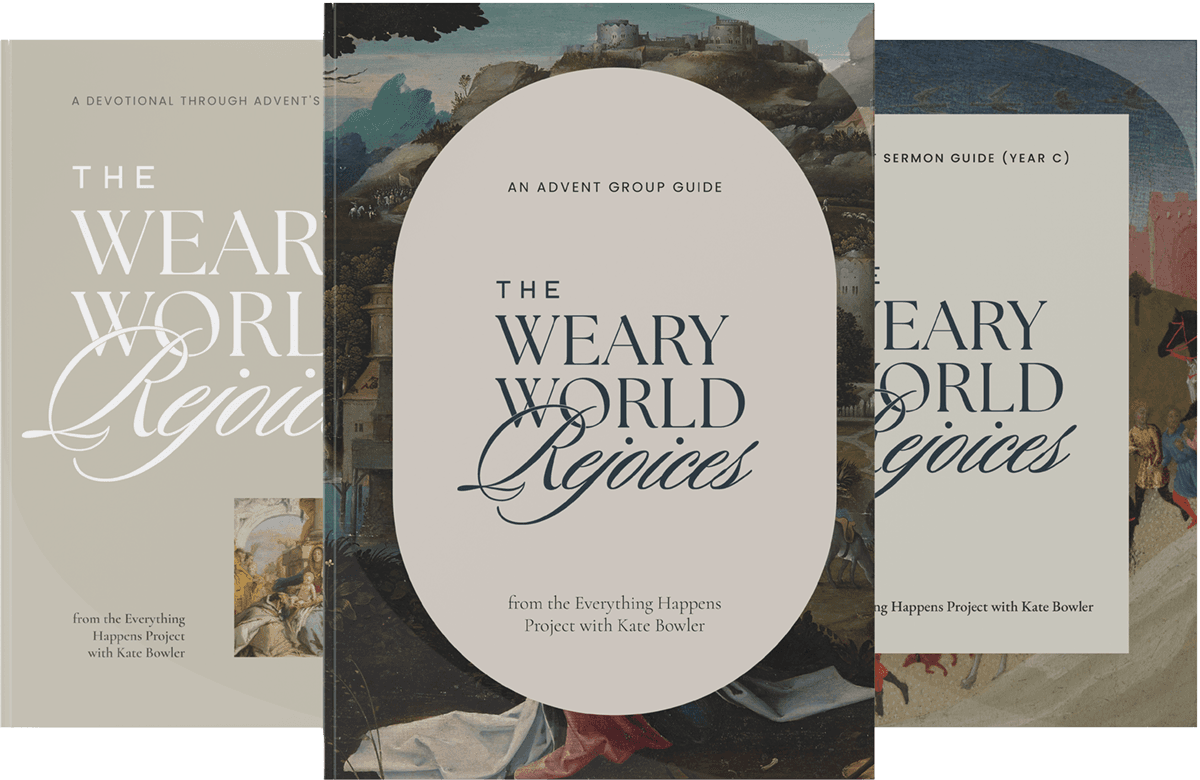
Leave a Reply